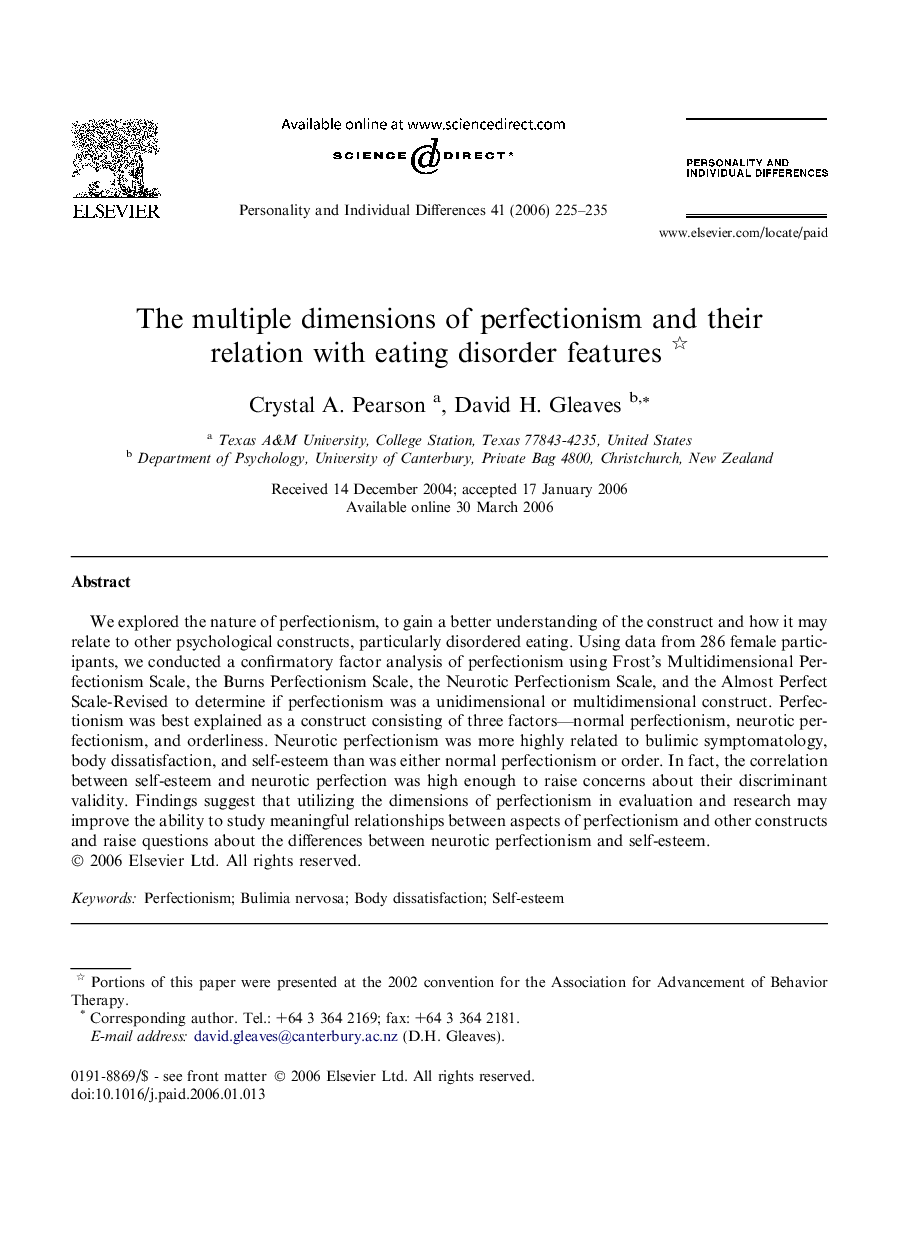| Article ID | Journal | Published Year | Pages | File Type |
|---|---|---|---|---|
| 893435 | Personality and Individual Differences | 2006 | 11 Pages |
We explored the nature of perfectionism, to gain a better understanding of the construct and how it may relate to other psychological constructs, particularly disordered eating. Using data from 286 female participants, we conducted a confirmatory factor analysis of perfectionism using Frost’s Multidimensional Perfectionism Scale, the Burns Perfectionism Scale, the Neurotic Perfectionism Scale, and the Almost Perfect Scale-Revised to determine if perfectionism was a unidimensional or multidimensional construct. Perfectionism was best explained as a construct consisting of three factors—normal perfectionism, neurotic perfectionism, and orderliness. Neurotic perfectionism was more highly related to bulimic symptomatology, body dissatisfaction, and self-esteem than was either normal perfectionism or order. In fact, the correlation between self-esteem and neurotic perfection was high enough to raise concerns about their discriminant validity. Findings suggest that utilizing the dimensions of perfectionism in evaluation and research may improve the ability to study meaningful relationships between aspects of perfectionism and other constructs and raise questions about the differences between neurotic perfectionism and self-esteem.
